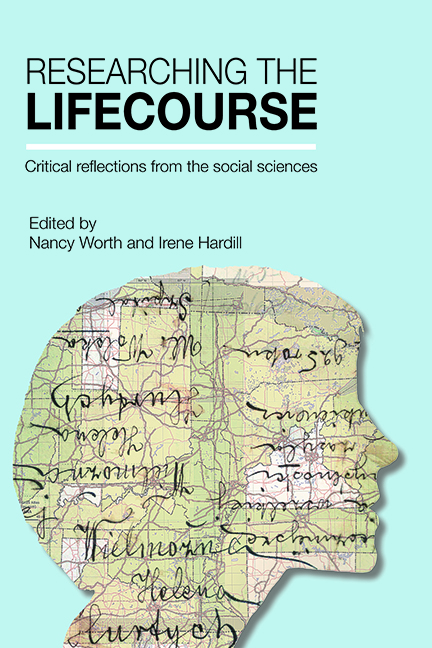one - Introduction
Published online by Cambridge University Press: 08 March 2022
Summary
Lifecourse research is undertaken by researchers from across the social sciences, often working in a multidisciplinary context, using the lifecourse as an underpinning concept and/or a method of study. In this book we aim to represent the diversity of lifecourse methodologies employed in the social sciences, as well as having a concern for epistemology – how different knowledge claims are connected to our research practices. Moreover, the contributors in this edited book emphasise how different theoretical frameworks and positionality affect the research process – each contributor examines the challenges of their research design and how they worked through methodological issues – providing reflexive accounts of the process of lifecourse research, including a focus on ethical issues.
This collection has its origins in a series of conference sessions held at the American Association of Geographers’ (AAG) Annual Meeting in 2012 in New York City. Besides a theme of lifecourse research, we were interested in hearing methodological reflections – why researchers approach particular questions in particular ways. Geography matters to all social scientists who employ the lifecourse as a concept and a method of enquiry, as spaces and places form the geographical context of a person’s lifecourse. Inspired by the work of Law (2004, p 5), who argues that ‘methods, their rules, and even more methods’ practices, not only describe but also help to produce the reality that they understand’, we turned our attention to methods in lifecourse research not as a primer on how to do research but as a way of thinking though the power of method to generate the results of our research. It seemed to us that these vital questions of practice are often left out of published empirical and theoretical work on the lifecourse, where discussions of the complexities of research design and its implementation are sacrificed in favour of polished accounts of final results. The AAG sessions provoked a lively discussion about how we do lifecourse research in different ways both within and across social science disciplines. We also shared stories of what methods worked in our research, which ones failed spectacularly and which ones needed to be adapted carefully to fit our inquiries, thinking through multiple ways of understanding ‘best practice’ and being ethically responsible to our research participants. Returning to Law (2004) and his wider call for more ‘mess’ in social science research, this collection represents our efforts to draw attention to how methods capture social life.
- Type
- Chapter
- Information
- Researching the LifecourseCritical Reflections from the Social Sciences, pp. 1 - 22Publisher: Bristol University PressPrint publication year: 2015



